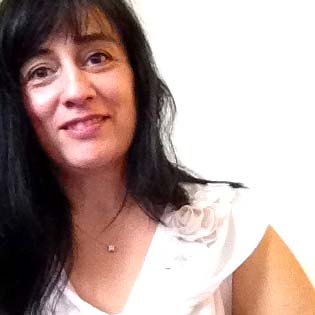Just a buzz? Exploring collaborative learning in an open course for professional development of teachers in higher education
Tuesday 13:00-14:30 (2), Mezzanine Balcony
Type: Poster
Theme: MOOCs and open courses
http://fdol.wordpress.com/ #oer14 #abs23Authors
Chrissi Nerantzi, Principal Lecturer Academic CPD, Manchester Metropolitan University, [email protected]Neil Withnell, Senior Lecturer in Mental Health Nursing, University of Salford, [email protected]
Abstract
This poster provides insights into the collaborative learning experience of open learners of the Flexible, Distance, Online Learning (FDOL) course http://fdol.wordpress.com/. It is a case study for a PhD research project in open cross-institutional academic practice for professional development of teachers in Higher Education (HE).Wiley (2006) calls for "openness" in academic practice "to ensure transparency, collaboration and continued innovation” (online). Recently, more importance has been placed on the professional development for teachers in HE and their value and impact has been recognised (Parsons et al, 2012). The European Commission (2013) urged member states to enhance the quality of teaching across the European Union "through teaching and learning experiences for all students [that] must be globally connected, enabling students to develop an understanding of how their subject is viewed and pursued in different parts of the world." (p. 3). Creelman & Reneland-Forsman (2013) argue that interaction, dialogue, collaboration and co-creation are vital features to make online learning work. While Massive Open Online Courses have mushroomed since 2012, Weller (2013) argues that learning in MOOCs requires a high level of autonomy, confidence in networks but also persistence and motivation. MOOCs are not for all. FDOL has been developed to enable flexible learning, depending on learners’ preferences, confidence and competence at the start of an open course, including collaborative learning based on a simplified version of PBL and supported by facilitators. We experiment with how courses can be opened-up and connected beyond institutions, turning competition into collaboration for the common good of teachers and students in the global HE landscape.
FDOL was developed by three academic Developers from the UK and Sweden to connect teachers to learn together, to broaden and deepen their understanding about learning and teaching in the digital age and develop capacity for lifelong professional development. The course was offered from September to December 2013. A pilot study, helped test and refine some of the organisers’ ideas and concepts. Freely available social media technologies were used for FDOL. These created connected, seamless and mobile learning spaces and enabled professional communities for learning and development to emerge.
Phenomenography is a qualitative research methodology developed for educational research in Higher Education to explore the variation of a lived experience. It has been chosen for this project to gain a deeper insight into the open learners’ lived experience in informal and formal cross-institutional academic development courses. The overall aim is to develop a flexible collaborative learning framework for cross-institutional open courses. A collective case study approach is used to investigate the learners’ experience in different natural settings.
Preliminary findings linked to the FDOL case study are shared and specifically data gathered and analysed from survey instrument that helped first conclusions to be drawn regarding the profile of the participants, their motivations, prior related experiences and learning habits. We will discuss how these factors influenced engagement with the course, linked to collaborative learning. Further research is currently linked to this specific case study and two additional case studies. Collectively, findings from all three case studies will inform the design of the flexible collaborative open online learning framework for cross-institutional modules and programmes within Academic Development.
References
Creelman, A. and Reneland-Forsman, L. (2013). Completion rates – a false trail to measuring course quality? Let’s call in the HEROEs instead. European Journal of Open, Distance and E-Learning, 2013/II. Available from: http://www.eurodl.org/?article=583. [Accessed 12 October 2013].European Commission (2013). High level group on the modernisation of higher education. Report to the European Commission on Improving the quality of teaching and learning in Europe's higher education institutions. Luxembourg: Publication of the European Union. Available from: http://ec.europa.eu/education/higher-education/doc/modernisation_en.pdf. [Accessed 19 September 2013].
Parsons, D., Hill, I., Holland J. and Willis, D. (2012). Impact of teaching development programmes in higher education, York: The Higher Education Academy. Available from: http://www.heacademy.ac.uk/assets/documents/research/HEA_Impact_Teaching_Development_Prog.pdf. [Accessed 18 September 2013].
Weller, M. (2013). MOOCs and the battle to open up Higher Education, weblog post, The Conversation, 5.7.13, available at https://theconversation.com/moocs-and-the-battle-to-open-up-higher-education-15823 [Accessed 6 July 2013].
Wiley, D. (2006). Open source, openness, and higher education. Innovate, Oct/Nov, Volume 3, issue 1. Available from: http://www.innovateonline.info/pdf/vol3_issue1/Open_Source,_Openness,_and_Higher_Education.pdf. [Accessed 28 September 2013].
Files
Recap recording
A short presentation of this poster can be found at https://vimeo.com/94124553.
Further details
Keywords: Open educational practice, higher education, professional practice, collaborative learning, Problem-Based Learning
Website: http://fdol.wordpress.com/
Mrs Chrissi Nerantzi, Principal Lecturer Academic CPD, Manchester Metropolitan University
Twitter: @chrissinerantzi
Twitter abstract: Just a buzz? Exploring collaborative learning in an open course for professional development of teachers in HE
